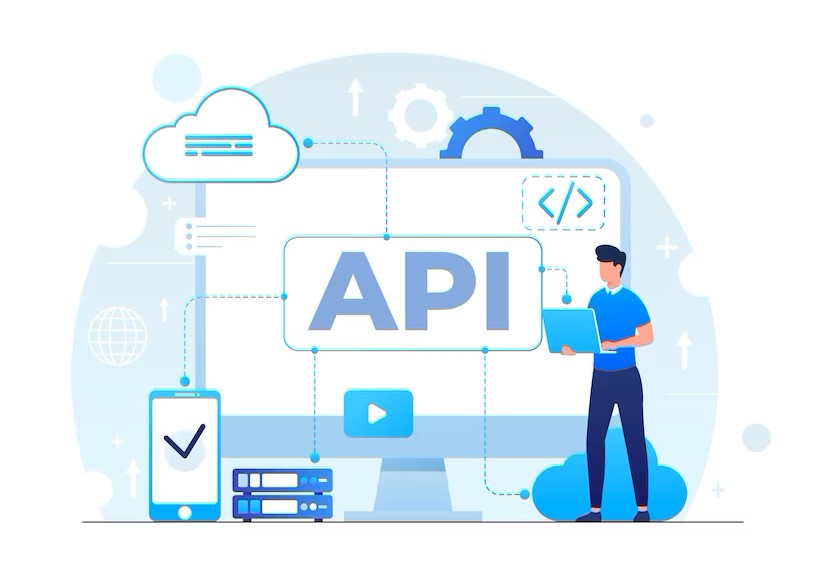Discover how APIs are transforming businesses from mere integration to driving innovation in this SEO-friendly blog post. Learn about the role of APIs in digital transformation, best practices, and key benefits.
In today’s fast-paced digital landscape, businesses are constantly seeking innovative ways to stay ahead of the competition and deliver exceptional customer experiences. One key driver of digital transformation is the use of Application Programming Interfaces (APIs). APIs have come a long way from their initial use as a means to integrate different systems and applications. Today, APIs are powerful tools that enable businesses to drive innovation and unlock new opportunities. In this blog post, we will explore the role of APIs in driving digital transformation, from integration to innovation, and how they can revolutionize the way businesses operate.
Integration – The Foundation of Digital Transformation
Integration has always been a crucial aspect of technology in businesses. Organizations have multiple systems and applications that need to work together seamlessly to streamline processes, share data, and enable smooth operations. In the past, integration was achieved through custom code, point-to-point connections, and complex middleware solutions. However, these approaches were often time-consuming, expensive, and limited in scalability. This is where APIs emerged as a game-changer.
APIs provide a standardized way for different systems and applications to communicate and share data. They act as a bridge that allows software components to interact with each other, enabling seamless integration and data exchange. APIs have become the backbone of modern digital infrastructure, powering a wide range of applications, including mobile apps, cloud-based services, IoT devices, and more. By leveraging APIs, businesses can integrate their systems and applications more efficiently, reduce development time, and improve overall agility.
From Integration to Innovation – The Transformative Power of APIs
While integration remains a fundamental use case of APIs, their true power lies in driving innovation. APIs have evolved beyond mere integration and are now seen as strategic enablers of digital transformation. Businesses are leveraging APIs to create new business models, deliver exceptional customer experiences, and unlock new revenue streams. Here are some key ways APIs are fueling innovation:
- Enabling Ecosystems: APIs allow businesses to create open ecosystems that foster collaboration and innovation. By exposing their APIs to external developers, partners, and customers, businesses can leverage the collective power of diverse expertise to create new applications, products, and services. This promotes innovation and drives new business opportunities.
- Enhancing Customer Experiences: APIs enable businesses to deliver personalized and contextual experiences to their customers. By integrating with external APIs, businesses can tap into third-party data, services, and functionalities to create seamless and engaging experiences. For example, APIs from mapping services can be used to provide location-based services, payment APIs can enable seamless transactions, and social media APIs can facilitate social sharing and engagement.
- Monetizing Data: APIs allow businesses to unlock the value of their data and turn it into a strategic asset. By exposing APIs to external developers and partners, businesses can create data marketplaces, where data can be consumed and monetized. This opens up new revenue streams and business models, driving innovation in data-driven decision-making and insights.
- Facilitating Innovation: APIs facilitate rapid innovation by providing building blocks that developers can use to create new applications and services. This reduces development time and effort, enabling businesses to quickly experiment with new ideas, iterate, and bring innovative products and services to market faster.
Mastering Java Development with JDK: Tips and Best Practices
Best Practices for API-Driven Digital Transformation
To fully leverage the potential of APIs in driving digital transformation, businesses should follow some best practices:
- Define Clear Objectives: Clearly define your business objectives and the desired outcomes of your API-driven initiatives. This will help you align your API strategy with your overall business goals and ensure that you are driving the right outcomes.
- Design for Simplicity and Scalability: Design APIs that are simple, easy to use, and scalable. Keep in mind the needs of external developers and partners, and provide comprehensive documentation and support to ensure smooth integration and adoption.
- Foster Collaboration: Create a collaborative culture within your organization that encourages cross-functional teams to work together to develop and manage APIs. Involve stakeholders from different departments such as IT, marketing, and business development to ensure that APIs are aligned with the overall business strategy and requirements.
- Prioritize Security: APIs handle sensitive data and functionalities, so security should be a top priority. Implement robust security measures such as authentication, authorization, encryption, and monitoring to protect against potential security risks and ensure data privacy and compliance.
- Foster Innovation: Encourage innovation by providing a supportive environment for developers and partners to experiment with APIs and come up with new ideas. Foster a culture of continuous improvement, feedback, and learning to drive innovation and stay ahead of the competition.
- Plan for Scalability: APIs should be designed with scalability in mind to accommodate future growth and changing business needs. Plan for scalability by using industry standards, following API design best practices, and regularly monitoring and optimizing API performance.
Conclusion
In today’s digital landscape, APIs are no longer limited to just integration, but they have evolved to become key enablers of innovation and digital transformation. They provide businesses with the means to create open ecosystems, enhance customer experiences, monetize data, and facilitate rapid innovation. By following best practices and prioritizing security, scalability, and collaboration, businesses can fully leverage the power of APIs to drive their digital transformation initiatives and stay ahead in the competitive market.
In conclusion, APIs have come a long way from their traditional use in integration and have become critical drivers of digital transformation and innovation. Businesses that embrace APIs as strategic enablers can unlock new opportunities, create unique customer experiences, and drive business growth in the digital era. So, whether you are a small business or a large enterprise, it’s time to harness the power of APIs and embark on your digital transformation journey to stay competitive and thrive in today’s digital world.

